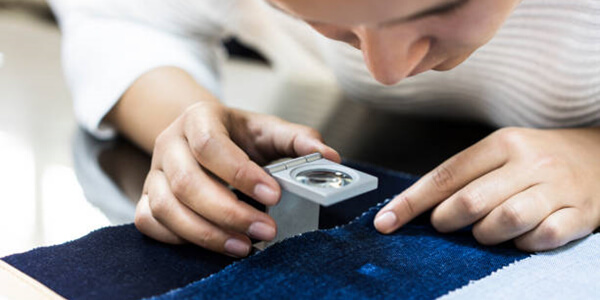
Main Certifications for Textiles
Introduction
Textile products have become an integral part of our daily lives, and the growing concern for sustainable products has led to the introduction of various certifications. These certifications aim to ensure that textile products meet specific standards and criteria. This blog post will provide an overview of the most famous textile certifications, including their content, requirements, certification bodies, application, and a comparison of their key features.
Global Recycle Standard (GRS)
The GRS certification ensures that textile products are made from recycled materials and that the production process is environmentally responsible. The certification requirements include the following:
- The traceability of recycled input materials.
- The reduction of harmful chemicals.
- The proper treatment of waste materials.
The certification body for GRS is Textile Exchange, and the application process involves an evaluation of the company's environmental and social impact. GRS certification applies to various textile products, including apparel, home textiles, and accessories.
Global Organic Textile Standard (GOTS)
GOTS certification ensures that textile products are made from organic fibers and that the production process is environmentally and socially responsible. The certification requirements include the traceability of organic input materials, reduced harmful chemicals, and compliance with fair labor standards. The certification body for GOTS is Control Union Certifications, and the application process involves an evaluation of the company's environmental and social impact. GOTS certification applies to various textile products, including apparel, home textiles, and accessories.
Organic Content Standard (OCS)
OCS certification ensures that textile products contain organic material and that the production process is environmentally responsible. The certification requirements include the traceability of organic input materials and the proper treatment of waste materials. The certification body for OCS is Textile Exchange, and the application process involves an evaluation of the company's environmental and social impact. OCS certification applies to various textile products, including apparel, home textiles, and accessories.
Better Cotton Initiative (BCI)
BCI certification aims to promote sustainable cotton production and improve the livelihoods of cotton farmers. The certification requirements include reducing harmful chemicals, water conservation, and compliance with fair labor standards. The certification body for BCI is Control Union Certifications, and the application process involves an evaluation of the company's environmental and social impact. BCI certification applies to cotton products, including apparel, home textiles, and accessories.
Responsible Down Standard (RDS)
RDS certification ensures that down feathers used in textile products are ethically sourced and that the production process is environmentally responsible. The certification requirements include the traceability of down feathers, compliance with animal welfare standards, and reducing harmful chemicals. The certification body for RDS is Textile Exchange, and the application process involves an evaluation of the company's environmental and social impact. RDS certification applies to products containing down feathers, including apparel, home textiles, and bedding.
Bluesign
Bluesign certification ensures that textile products are made environmentally responsible and sustainably. The certification requirements include the following:
- The use of environmentally friendly materials and chemicals.
- The reduction of waste and emissions.
- Compliance with fair labor standards.
The certification body for Bluesign is Bluesign Technologies AG, and the application process involves an evaluation of the company's environmental impact. Bluesign certification applies to various textile products, including apparel, home textiles, and accessories.
Oeko-tex
Oeko-tex certification ensures that textiles are free of harmful substances, making them safe for human use. The certification applies to every stage of textile production, including raw materials, fibers, yarns, fabrics, and finished products. The Oeko-tex certification process involves testing over 100 harmful substances, including heavy metals, carcinogens, and allergenic dyes. The certification is valid for one year, and renewal is required annually. The certification applies to all textiles, including clothing, home textiles, and accessories. Independent third-party certification bodies award the certificate.
Comparison of certifications:
| Certification | Content | Requirements | Certifying Body | Applicable Products |
| GRS | Ensures that the product is made from recycled materials | Traceability, social and environmental criteria | Textile Exchange | All types of textiles |
| GOTS | Ensures that the product is made from organic fibers | Traceability, social and environmental criteria | Control Union Certifications | All types of textiles |
| OCS | Ensures that the product contains a minimum of 5% organic materials | Traceability, social and environmental criteria | Control Union Certifications | All types of textiles |
| BCI | Ensures that cotton is produced sustainably | Environmental, social, and economic criteria | Better Cotton Initiative | Cotton products |
| RDS | Ensures that down and feathers are ethically sourced | Traceability, animal welfare criteria | Textile Exchange | Down and feather products |
| Bluesign | Ensures that the product is produced sustainably | Chemical management, environmental criteria | Bluesign Technologies | All types of textiles |
| Oeko-tex | Ensures that textiles are free of harmful substances | Chemical management, safety criteria | Oeko-tex Association | All types of textiles |
In summary, textile certifications are essential in ensuring sustainable and ethical production practices in the textile industry. Each certificate has its unique requirements and criteria, but they all share the common goal of promoting sustainability and ethical rules. By choosing products that have been certified, consumers can feel confident that they are making a positive impact on the environment and society. HAVING(CHINA)LIMITED could produce underwear with the above material at your demand; get a quote now!
